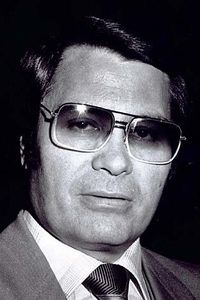Jim Jones was born during the Great Depression to James Thurman Warren Jones Sr. and Lynetta Putnam, his father being an alcoholic Klansman and claiming his mother was part Cherokee Indian. He spent his formative years in conservative rural Indiana, where his father struggled to earn a living as a mystic fortune teller. His parents separated in 1948, and Jim went to live with his mother in Richmond, Indiana.
Jim worked as an orderly at a local hospital and got married young to a nurse four years his senior, adopting three children of diverse ethnic backgrounds. He began working as a Methodist minister in Indianapolis in the early 1950s, but was defrocked in 1954 after claiming he had met God on a train ride near Philadelphia.
Jim founded his own gathering, the Community National Unity Church, and later renamed it the People's Temple Full Gospel Church. He set up a soup kitchen, gave away groceries and clothes to the poor, and established two nursing homes, while preaching messages of apostolic socialism and racial equality. Secretly, he also joined the Communist party.
In the early 1960s, Jim had a vision of apocalyptic destruction and decided to move his congregation to Ukiah, California. He then moved to San Francisco's Fillmore district in 1965, where his 'flock' of believers reached a peak of 3,000. Jim received several humanitarian awards in Northern California for his work with the poor.
However, there were occasional bizarre behaviors, including a fake attempt on his own life after Dr. Martin Luther King's assassination in 1968. Jim received a humanitarian award in 1976 and was appointed to the San Francisco Housing Authority by the Mayor George Moscone. However, he was becoming more and more of a dictator.
Jones demanded sexual favors from some young women, was the only person who could decide if a couple in his congregation could get married, and often separated children from their parents. In 1973, eight close aides defected from his camp and revealed these details to the press.
Jim began making plans to move his congregation to the socialist nation of Guyana in South America. By 1974, fifteen of his followers had negotiated a lease for 27,000 acres on Guyana's western border with Venezuela, and began clearing the jungle for what would become the Peoples Temple Agricultural Project, or "Jonestown." Jim eventually relocated to Guyana in July 1977.
In December 1977, his mother Lynetta Jones died at Jonestown. In 1978, a group of ex-members calling themselves the Committee of Concerned Relatives published literature that likened Jonestown to a concentration camp, complete with torture. Jones began teaching his followers about mass suicide and held practice drills to test his members' loyalty.
In November 1978, U.S. House Representative Leo J. Ryan visited the compound and sought to bring back several defectors, including an ex-member's child. Leo's entourage, along with fifteen defectors, were ambushed and killed by Jones' people on the airstrip as they attempted to leave. The next day, the entire community of 914 'followers' (including 276 children) drank a deadly potion of Fla-Vor Aid laced with cyanide poison. Jones' wife was among them. After the mass suicide of his followers, Jones and a close aide shot themselves.


























